The eighth webinar in the “Network States and New Countries” series, titled “Finances and Funding,” was successfully held on August 31, focusing on the challenges and strategies for securing financial support for innovative projects and new societal frameworks.
Vahram Ayvazyan, founder and board chairman of the Panarmenian Network State addressed the crucial issue of finances and funding. He shared insights from the Panarmenian Network State’s experiences, detailing both successes and challenges with various projects. Vahram emphasized the importance of visionary leadership and innovative financial models, such as decentralized and blockchain solutions, to support and sustain new societal frameworks. He called for a reimagined approach to funding that includes engaging with visionary individuals and exploring new financial mechanisms.
Steve Clancy, representing the New Nation Project, outlined the project’s evolution from its original focus on claiming territory between Egypt and Sudan to its current approach of exploring sovereign leases in collaboration with host nations. Steve highlighted the project’s stages, from initial self-funding to seeking venture capital and eventually financing through land sales and blockchain tokenization. He emphasized the importance of leasing rather than outright purchasing land and provided examples of successful sovereign leases. Steve concluded by expressing optimism about the project’s potential and encouraged attendees to follow future developments.
Alpha Barry, founder and CEO of New Earth Alpha, shared his insights on funding and building network state projects. Drawing from his experience with Afropolitan and Praxis, Alpha discussed the challenges of securing venture capital, noting that traditional VCs often seek high returns within short timelines, which doesn’t align well with the early stages of network state projects. Alpha suggested that successful projects require a core group of highly engaged members rather than large numbers, and that voluntary contributions can be more effective than conventional venture capital. He concluded that while VCs may eventually play a role, early-stage funding often needs to come from alternative sources.
Federico Pomi, CEO and founder of Fabrica, discussed his company’s approach to real estate tokenization. With over 500 properties tokenized and more than 20 licenses obtained, Fabrica’s model combines existing legal frameworks with innovative digital solutions. Federico highlighted that while traditional lenders are cautious, the platform is creating new opportunities for capital access through decentralized finance. He also noted that the approach aligns well with network state ideologies by offering a more efficient and scalable method for property ownership and management.
Jonathan Weinert, initiator of the Nova Nicaea Project, discussed his initiative to create Christian libertarian communities. Nova Nicaea aims to merge Christian values with libertarian principles by starting with an online community and progressing to physical relocation in free cities. Jonathan outlined the project’s stages: 1) Building an online presence, 2) Relocating to a free city, 3) Developing Christian polities globally. He emphasized that the project seeks to offer an alternative to traditional states, inspired by historical Christian unity and modern libertarianism.
In the Q&A, the discussion covered the challenges of using national debt for land acquisition, difficulties with venture capital, and updates on ongoing projects. The conversation also touched on creating a libertarian model for cultural coexistence and the need for fair compensation for those working on new global initiatives. The emphasis was on securing funding and support for effective implementation.

